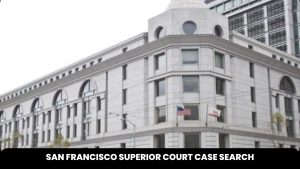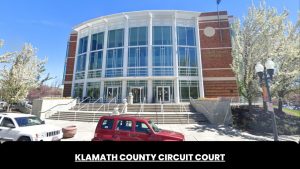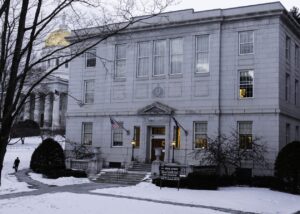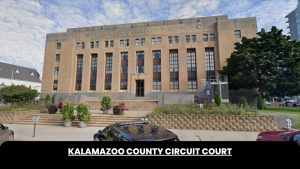D.C. Superior Court
Introduction
The Superior Court of the District of Columbia, more commonly known as D.C. Superior Court, is the local trial court for Washington, D.C. As the largest unified trial court in the United States, it handles the majority of local criminal and civil cases arising under D.C. law. D.C. Superior Court has a complex history reflecting the unique status of the District as a federal entity without its own state court system. Today, the court operates out of several locations in D.C. with over 100 judges and magistrates overseeing a high volume of cases each year. Read on to learn more about the origins, jurisdiction, operations, key figures, and notable cases of this important D.C. institution.
History of D.C. Superior Court
Establishment and Early Years
D.C. Superior Court was formally established in 1970 when Congress passed the District of Columbia Court Reform and Criminal Procedure Act. This legislation called for a unified court system for D.C., including the consolidation of the Court of General Sessions and the Juvenile Court of the District of Columbia into the new Superior Court.
In its early years, D.C. Superior Court faced considerable growing pains such as staff shortages, inadequate facilities, and a burgeoning caseload. However, the court gradually expanded its operations and by 1976 had appointed several new judges to help handle the rising number of cases.
Key Developments
Key developments for D.C. Superior Court over the past several decades include:
- The opening of the Moultrie Courthouse in 1978, providing a dedicated, centralized facility for Superior Court operations.
- The establishment of specialized divisions and programs over time, including the Family Court in 1993.
- The expansion of alternative dispute resolution offerings for civil cases.
- Increased security measures and renovations to upgrade aging infrastructure.
- The launch of the court’s website and electronic filing system to improve public access.
Recent History
In more recent years, D.C. Superior Court has contended with budget constraints impacting its staffing levels and resources. However, the court has continued working through a high volume of cases, including several high-profile criminal prosecutions. Ongoing priorities include reducing case backlogs, upgrading technology, and improving language access for non-English speakers.
Jurisdiction and Operations
D.C. Superior Court holds jurisdiction over criminal cases prosecuted by the U.S. Attorney as well as a broad range of civil claims arising under D.C. law. The court is organized into several divisions handling different case types.
Civil Division
The Civil Division oversees lawsuits between private parties involving issues such as contracts, personal injury, malpractice, property disputes, and more. Cases may involve juries, bench trials, or alternative resolution processes.
Criminal Division
This division handles misdemeanor and felony criminal prosecutions brought by the U.S. Attorney’s Office for D.C. Proceedings include arraignments, hearings, trials, sentencings, and other matters.
Family Court
The Family Court division deals with domestic relations issues like divorce, child custody, child support, and parentage. It has courthouses in both Northeast and Southeast D.C. to serve residents throughout the area.
Probate Division
Probate cases involving wills, estates, conservatorships, and guardianships are handled in this smaller division of Superior Court.
Courthouses and Locations
Moultrie Courthouse
The H. Carl Moultrie Courthouse, located at 500 Indiana Avenue NW, is the Superior Court’s central and largest facility. The eight-story building contains courtrooms and hearing rooms for all of the court’s divisions plus administrative offices.
Other Locations
Superior Court also utilizes courthouse space in other parts of D.C., including:
- The Family Court buildings in Northeast and Southeast.
- The Probate Division in the Old Courthouse at 451 Indiana Avenue NW.
- Various locations for its community-based court programs.
Judges and Personnel
Judges
D.C. Superior Court currently has 103 active judges serving on the court. Most are appointed by the President of the United States and confirmed by the U.S. Senate for 15-year terms. Others are designated as senior judges or magistrate judges. The Chief Judge oversees administration and policy for the court.
Marshals
U.S. Marshals provide security and enforce federal law at D.C. Superior Court facilities. The current U.S. Marshal overseeing Superior Court operations is Robert Dixon.
Support Staff
Hundreds of additional personnel keep Superior Court running smoothly each day, including court reporters, clerks, administrators, social workers, probation officers, interpreters, mediators, and more.
Notable Cases
High-Profile Criminal Cases
D.C. Superior Court has handled many prominent D.C. crime prosecutions over the years, including the 2011 trial of former Congressman William Jefferson on corruption charges and the 1990 trial of then-Mayor Marion Barry for drug possession.
Major Civil Litigation
The court has overseen significant civil lawsuits as well, like discrimination claims against the D.C. fire department in the 1970s and negligence lawsuits related to the 1982 metro crash that killed three people.
Impact and Significance
Role in D.C. Justice System
As the highest trial court in D.C., Superior Court holds an integral position in the local justice system. The outcomes of criminal and civil cases here have major implications for D.C. residents and government.
Reputation and Critiques
Superior Court has faced criticism at times for issues like case backlogs, trial delays, outdated facilities, and resource constraints. However, it maintains an overall solid reputation and works to continuously improve its operations and service to the public.
Conclusion
For over 50 years, D.C. Superior Court has evolved to meet the District’s local judicial needs. Despite its challenges, it continues providing critical functions as the venue where D.C.’s criminal and civil cases are heard and decided. With its wide-ranging docket, central courthouse, experienced judges, and location in the nation’s capital, Superior Court stands as an important institution at the heart of justice in Washington, D.C.
FAQs
What types of cases does D.C. Superior Court handle?
Superior Court handles all local D.C. criminal prosecutions and civil claims involving issues like contracts, personal injury, family disputes, wills and estates, property matters, etc.
How many judges serve on the D.C. Superior Court?
There are currently 103 active judges serving on Superior Court and several senior judges who provide additional support.
Does D.C. Superior Court hold jury trials?
Yes, Superior Court conducts jury trials for many criminal cases and certain civil lawsuits. Other matters may be decided through bench trials or alternative processes.
Where is D.C. Superior Court located?
The main courthouse is the Moultrie Courthouse at 500 Indiana Avenue NW, with additional operations at the Family Court buildings and other locations.
Who oversees and funds D.C. Superior Court?
Congress oversees Superior Court as part of D.C.’s local court system. Primary funding comes from the federal government.






